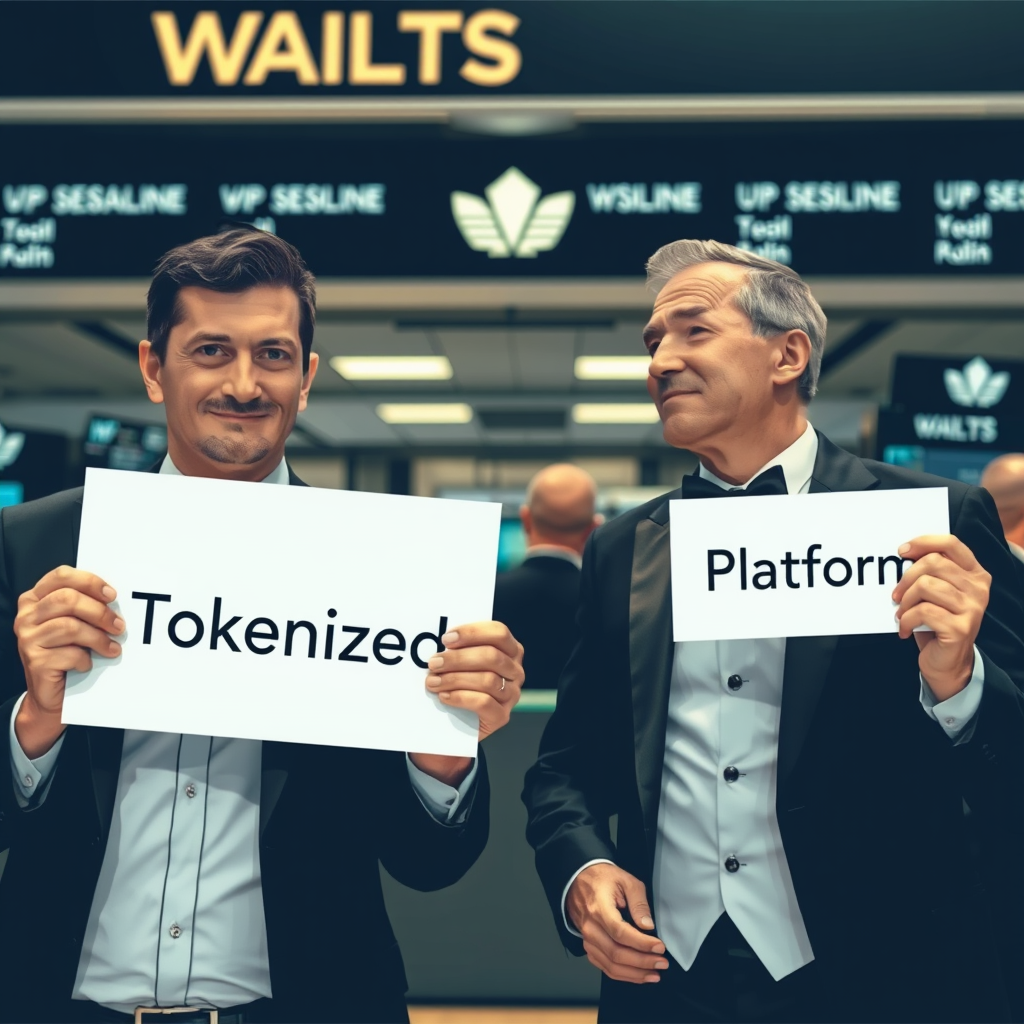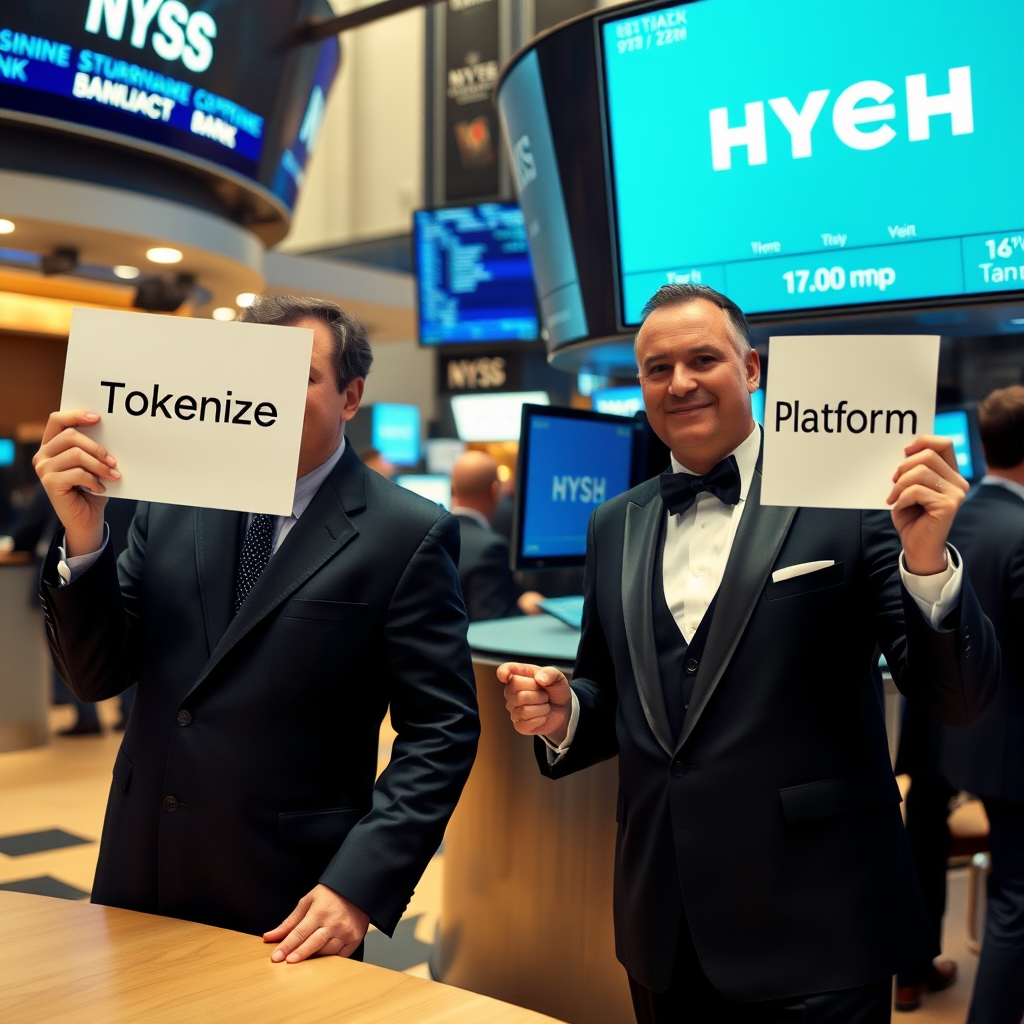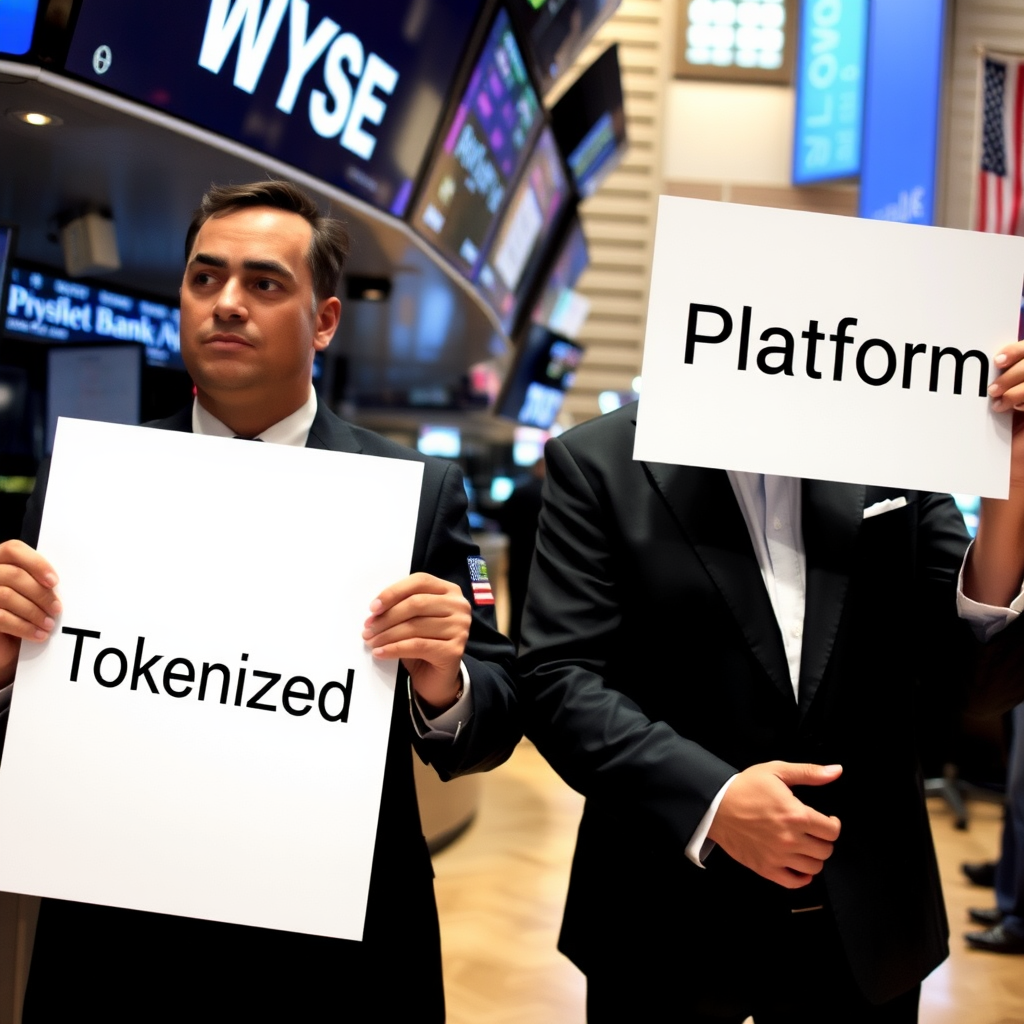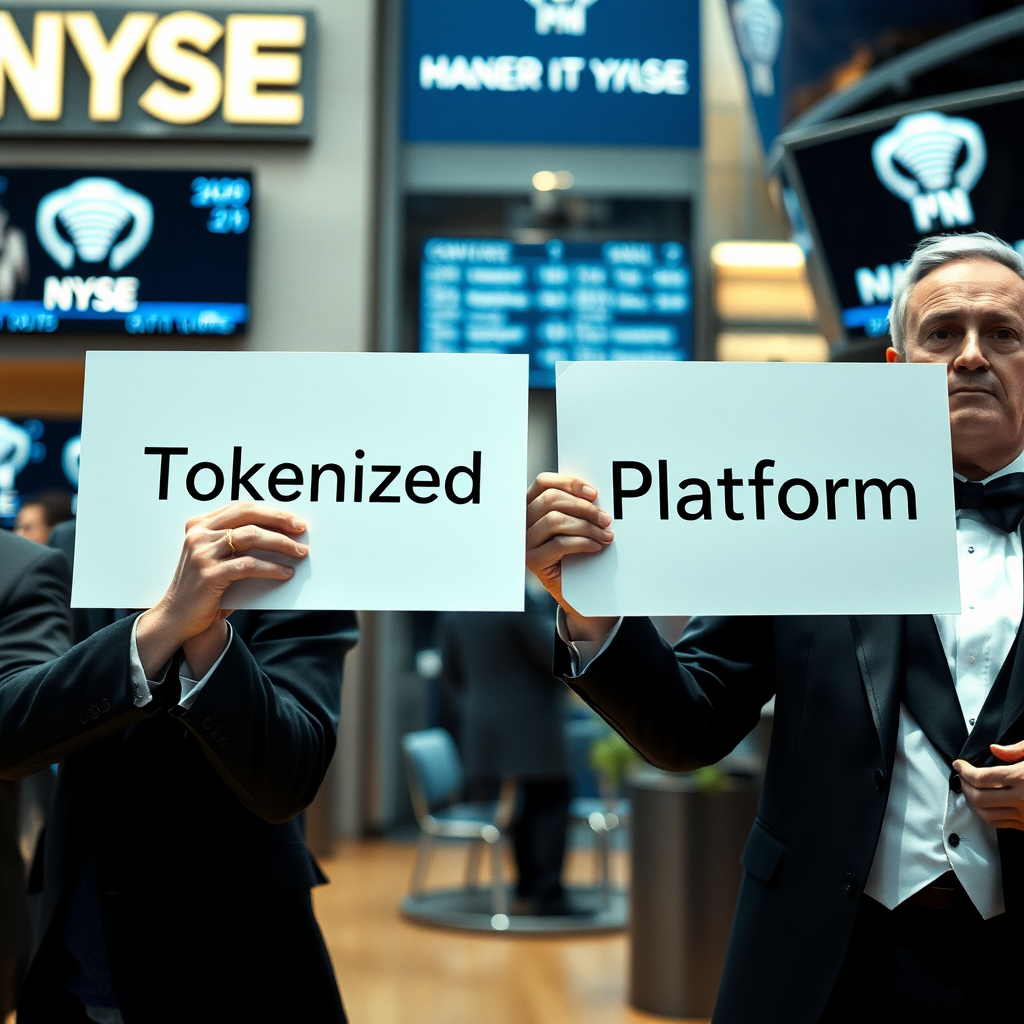Tokenized stocks represent a significant advancement in the world of finance, merging the traditional stock market with the innovative capabilities of blockchain technology, particularly through platforms based on ethereum. Essentially, tokenized stocks are digital assets that represent shares of a company, enabling investors to purchase these shares as tokens on a blockchain. This process is facilitated by something known as a tokenized platform, which is designed to handle the issuance, trading, and management of these digital shares.
One of the primary benefits of tokenized stocks is the concept of fractional ownership. In traditional markets, purchasing full shares can be prohibitively expensive, especially for high-value stocks. However, with tokenized stocks, investors can buy fractions of a share, allowing broader participation from individuals who might not have substantial capital to invest initially. This democratization of access aligns closely with the goals of DeFi, or decentralized finance, which seeks to create a more inclusive financial ecosystem.
Security tokens also play a vital role in this landscape, as they ensure compliance with regulatory frameworks while providing the benefits of the blockchain’s transparency and security. By leveraging ethereum’s robust smart contract functionality, tokenized stocks mitigate the risks associated with traditional stock trading, including issues related to fraud and counterparty risk. Creativity in crypto finance thus finds a practical application in making investment opportunities more accessible and secure.
The role of ethereum in democratizing investments

Ethereum acts as the backbone for numerous innovations in the world of decentralized finance, and its role in democratizing investments through tokenized stocks cannot be overstated. With its smart contract capabilities, ethereum enables the secure and compliant issuance and management of security tokens, laying the groundwork for broader market participation. This advancement allows for the automation of transactions and procedures that traditionally required intermediaries, reducing costs and increasing transaction speeds.
By leveraging ethereum’s decentralized nature, tokenizedplatforms provide a secure environment where transactions are transparent and immutable, further enhancing investor confidence. Fractional ownership is seamlessly facilitated on the ethereum blockchain, empowering investors to hold diversified portfolios without the need for significant capital. This shift not only erodes the barriers to entry typically associated with traditional stock markets but also aligns with the vision of DeFi to democratize the global financial system.
Moreover, ethereum’s global reach ensures that tokenized stocks are accessible to a worldwide audience, creating new opportunities for individuals in emerging economies to participate in financial markets that were previously difficult to access. As a result, ethereum increases market liquidity and opens up new avenues for wealth generation, promoting financial inclusion on an unprecedented scale. In essence, ethereum acts as a catalyst for innovation in crypto finance, integrating technology and finance in a way that challenges traditional models and expands access to investment opportunities.
Benefits of a tokenized platform
A tokenized platform offers numerous advantages that transform the traditional investment landscape by harnessing the power of blockchain technology and DeFi principles. One significant benefit is the enhanced accessibility to investment opportunities. By allowing investors to purchase tokenized stocks, individuals no longer need to acquire whole shares of expensive stocks, which effectively lowers the barrier to entry. Tokenized stocks lead to fractional ownership, which democratizes access, enabling more individuals to participate in markets that were previously reserved for institutional investors or those with substantial capital.
The transparency intrinsic to blockchain technology adds another layer of confidence for investors using a tokenized platform. Transactions are recorded on an immutable ledger, providing clear and accessible records that investors can trust. This transparency, when combined with the regulatory compliance associated with security tokens, ensures transactions are conducted safely and legally, mitigating risks such as fraud and manipulation.
Cost efficiency is another key advantage of a tokenized platform. Removing intermediaries typically involved in traditional stock trading significantly reduces transaction fees and costs linked to investment. These savings are passed on to investors, making the platform more appealing. In addition, smart contracts on ethereum automate various processes, leading to further reductions in time and cost inefficiencies associated with manual processing.
Liquidity is vastly improved with tokenized stocks on a tokenized platform. The ability to trade these digital assets quickly and efficiently means investors can easily enter and exit positions, providing a level of flexibility previously limited in traditional markets. Enhancing liquidity makes the market more dynamic, encouraging participation from a broader range of investors and potentially leading to more stable market conditions.
Furthermore, integrating global markets through a tokenized platform introduces new economic opportunities, particularly in regions with limited access to financial services. This alignment with the core objectives of DeFi promotes greater financial inclusion, allowing individuals from various backgrounds to contribute to and benefit from the financial ecosystem.
Overcoming challenges in tokenized stock trading

The emergence and operation of tokenized stocks through a tokenized platform face several challenges that must be addressed to fully capitalize on their potential. One of the most pressing issues is regulatory uncertainty. As tokenized stocks bridge traditional finance and blockchain technology, existing regulatory frameworks may not adequately address their unique nature. This creates a complex situation for companies aiming to issue tokenized stocks, as they must ensure compliance with varying legal standards globally. Continuous dialogue with regulators and adapting to evolving guidelines is essential to foster an environment conducive to the growth of crypto finance.
Security remains a paramount concern for tokenizedplatforms, as they handle high-value assets and sensitive investor data. Implementing robust security protocols and continuously updating them to fend off cyber threats is crucial. Moreover, ensuring that smart contracts on ethereum are free from vulnerabilities can prevent potential exploits that may lead to financial losses. Educating investors about the security measures in place can build trust and encourage more participation.
Another challenge involves scalability. As demand for tokenized stocks increases, platforms need to handle a larger volume of transactions efficiently. While ethereum provides a solid foundation, its current limitations in transaction processing speeds and costs must be addressed. The ongoing development of ethereum 2.0 and layer 2 solutions promises improvements in scalability, lowering gas fees, and faster transaction times, which will enhance the user experience on tokenizedplatforms.
Market volatility is a notable concern in the realm of crypto finance, as the decentralized nature of the market can lead to fluctuations that are more extreme than those seen in traditional markets. Educating investors about the risks inherent to trading tokenized stocks and promoting strategies to mitigate these risks can create a more informed investor base, reducing the negative impact of market volatility.
Despite these challenges, the potential for tokenized stocks to democratize access to investment opportunities remains significant. With ongoing innovation and strategic problem-solving, the obstacles that currently hinder their widespread adoption can be overcome, paving the way for an investment landscape that’s more inclusive, secure, and efficient.
Future implications for global investors

The future landscape for global investors seems poised for transformation as tokenized stocks continue to mature, providing new avenues for wealth generation and financial inclusion. The ability to engage with fractional ownership of high-value assets on ethereum-based tokenizedplatforms unlocks opportunities for investors worldwide, transcending geographical and economic boundaries. This evolution aligns with the principles of decentralized finance, offering a more inclusive alternative to traditional financial systems.
For global investors, the wider adoption of tokenized stocks could lead to a diversification of investment portfolios previously unachievable due to capital restrictions or access limitations. As more security tokens are issued, investors gain the ability to include a wider array of assets from different sectors and regions, enriching their investment strategies. This ease of access may encourage the redistribution of wealth, as more individuals engage in financial markets, fostering economic growth and stability on a broader scale.
Ethereum’s advancements in security, transparency, and smart contract functionality further bolster investor confidence, ensuring the processes on tokenizedplatforms remain reliable and efficient. As regulatory environments adapt to accommodate these technological innovations, global financial markets may experience increased harmonization, reducing the regulatory discrepancies that often hinder cross-border investments.
Moreover, the agility provided by tokenized stocks can offer investors a degree of responsiveness to market shifts that is unprecedented in traditional finance. The increase in market liquidity and the ability to quickly liquidate assets provides enhanced flexibility in responding to economic changes, potentially stabilizing markets as a whole. The global community of investors can benefit from these efficiencies, as trading costs decrease and portfolio rebalancing becomes more streamlined.
While challenges persist, the continued evolution of a tokenizedplatform, along with the integration of cryptocurrency and traditional finance, presents a future where global investment is defined by accessibility, inclusivity, and innovation. Crypto finance is likely to play an integral role in this transformation, promoting a financial ecosystem that truly encapsulates the ideals of DeFi, leaving lasting implications for individual investors and the global economy alike.






